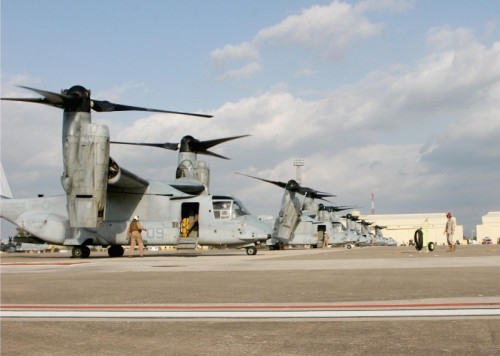This year’s Obangame Express maritime exercise, led by US Naval Forces Africa (NAVFORAF), began on April 16th in the Gulf of Guniea. This year’s exercise is taking place off the coasts of Cameroon and Nigeria. As with the other Express series exercises, Obangame Express will consist of an in-port preparatory phase, followed by an at-sea exercise to test the participants maritime security skills. This year, 31 ships from Angola, Belgium, Benin, Brazil, Cameroon, Cote d’Ivoire, Equatorial Guinea, France, Gabon, Germany, Ghana, The Netherlands, Nigeria, Portugal, Republic of Congo, Sao Tome & Principe, Spain, Togo, Turkey and the United States will participate in the exercise. The majority of these ships will operate from the Port of Lagos. This includes the USNS Spearhead (JHSV-1), which is the first of its class and on its maiden voyage.

USNS Spearhead (JHSV-1) maneuvers alongside the pier in Lagos, Nigeria on 13 April 2014. Spearhead arrived in Nigeria to participate in Obangame Express 2014. The ship was on its maiden voyage in the region as part of the Africa Partnership Station mission.
Obangame Express 2014 will test maritime security skills such as: VBSS (visit, board, search and seizure), medical response, radio communication, and information sharing across regional maritime operations centers (MOCs). According to the US Navy, Participants will execute tactics and techniques within scenarios that mirror real world counter-piracy and counter-illicit trafficking operations.
Obangame Express, which began in 2011, is currently one of four so-called “Express series” exercise in Africa run annually by NAVFORAF. “Obangame” means “togetherness” in a local Cameroonian language. These exercise focus on maritime security issues around the continent and look to build on other bilateral security cooperation events between the US and African nations. Most notably, the Express series exercises are intended to support existing US Navy security cooperation efforts as part of the Africa Partnership Station program. Obangame Express is also especially concerned with the issue of piracy in the Gulf of Guinea. With the decline in piracy off the coast of Somalia in the Gulf of Aden and the Indian Ocean, more attention has been focused on the matter of piracy in West Africa.
The plans for this year’s exercise were finalized back in February. The US Navy said the objective was to mirror the positive results of the 2013 exercise, tailoring scenarios closely to real-world maritime security challenges. This year’s exercise involves almost three times as many ships from more than twice as many countries when compared to Obangame Express 2013.

![Photograph of the USS Ponce (AFSB[I] 15) in the US Fifth Fleet Area of Operations in August 2012.](https://codebookafrica.files.wordpress.com/2013/11/afsbi-15_120828-n-yg591-126.jpg?w=500&h=332)